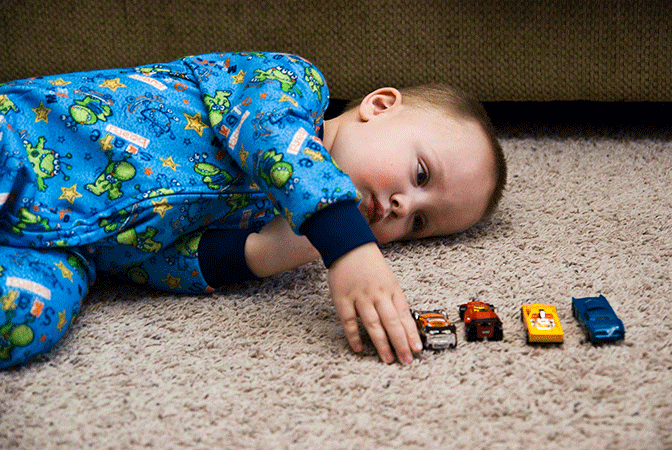The journey of language begins long before a child utters their first words. From the moment they are born, infants are immersed in a world of sounds, sights, and interactions that lay the groundwork for their future communication skills. In this comprehensive guide, we will explore the critical importance of early language development in infants and provide practical strategies for nurturing their communication skills from the earliest days of life.
Building Blocks of Language Development: Language development in infants is a multifaceted process that unfolds gradually over time. It begins with preverbal communication, such as crying, cooing, and facial expressions, and progresses to babbling, word recognition, and eventually, expressive language. Each stage of language development builds upon the previous, shaping the child’s ability to understand and communicate with the world around them.
The Power of Parental Interaction:
Parents play a central role in nurturing their baby’s language development through daily interactions and responsive communication. Talking, singing, reading, and engaging in playful exchanges with your baby not only expose them to language but also provide opportunities for social interaction, bonding, and cognitive stimulation. Research has shown that babies who experience rich language environments from an early age tend to develop stronger language skills later in life.
Creating Language-Rich Environments:
Creating a language-rich environment at home is essential for supporting your baby’s early language development. Surround your baby with language by narrating your daily activities, describing objects and actions, and engaging in conversations, even if your baby cannot respond verbally yet. Incorporate books, music, and rhymes into your daily routine to expose your baby to different sounds, vocabulary, and language patterns.
Reading Aloud: A Gateway to Language:
Reading aloud to your baby is one of the most powerful ways to foster early language development and literacy skills. Choose age-appropriate board books with simple illustrations and repetitive text, and make reading a cozy and enjoyable experience for both you and your baby. Point out pictures, ask questions, and encourage interaction to make the reading experience interactive and engaging.
Encouraging Responsive Communication:
Responsive communication involves tuning in to your baby’s cues and responding promptly and sensitively to their needs and signals. Pay attention to your baby’s sounds, gestures, and facial expressions, and respond with warmth, enthusiasm, and encouragement. By validating your baby’s attempts to communicate, you help build their confidence and lay the foundation for effective communication skills.
Signs of Language Development:
While every baby develops at their own pace, there are certain milestones and signs of language development to watch for in the first year of life. These may include:
Eye contact and social smiling in response to interaction
Vocalizations such as cooing, babbling, and imitating sounds
Turn-taking in conversations, with pauses for response
Gesturing and pointing to communicate needs or interests
Understanding and responding to simple commands or requests
Supporting Babies with Language Delays:
Some babies may experience delays or challenges in language development, which may require additional support and intervention. If you have concerns about your baby’s language development, consult with your pediatrician or a speech-language therapist for guidance and evaluation. Early intervention can be highly effective in addressing language delays and promoting healthy communication skills.
Early language development is a cornerstone of infant development, shaping the foundation for future communication, social interaction, and academic success. By nurturing your baby’s communication skills through responsive interaction, language-rich environments, and meaningful experiences, you lay the groundwork for a lifetime of effective communication and connection. Embrace the journey of language development with your baby, celebrating each babble, coo, and first word as milestones on the path to communication mastery.


Leave a Comment